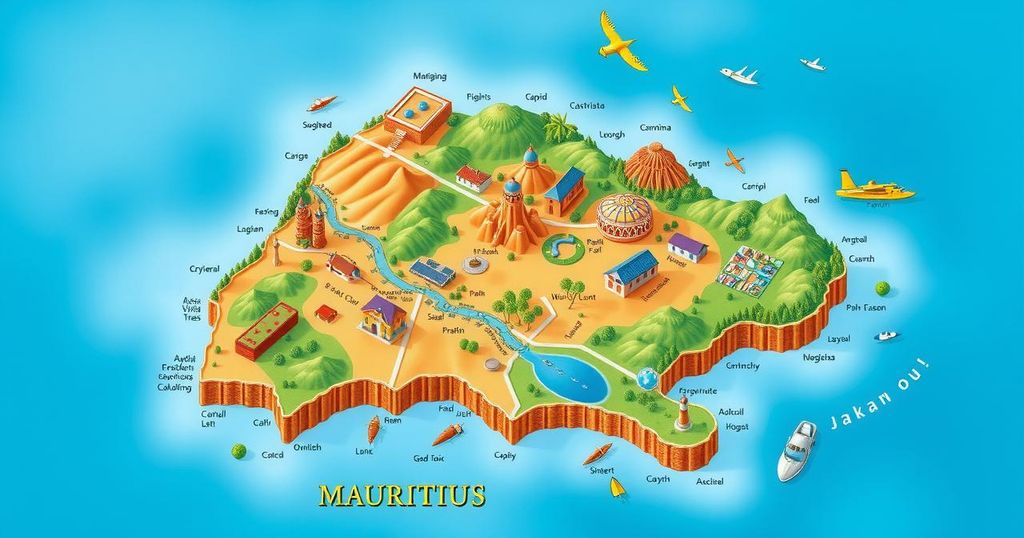The article discusses the strategic partnership between India and Mauritius, emphasizing Prime Minister Narendra Modi’s visit to strengthen bilateral ties. It highlights Mauritius’s geopolitical significance in the Indian Ocean, the complexities of its colonial history, and its recent sovereignty agreements, indicating the broader contest among global powers in the region. Modi’s visit reflects India’s resolve to solidify its role in regional security and support for Mauritius’s aspirations.
The ongoing visit of Prime Minister Narendra Modi to Mauritius aims to deepen the strategic partnership between India and Mauritius, which has significant historical and cultural ties. With nearly 70 percent of Mauritius’s population having Indian origins, the relationship is further strengthened by shared interests and mutual respect. Modi’s previous visit in 2015 marked a recognition of the Western Indian Ocean’s growing geopolitical importance, emphasizing India’s intention to enhance its diplomatic focus on the region.
As tensions in the Indian Ocean region increase, India faces the challenge of navigating its interests amid competition from external powers such as Europe, China, and the Gulf states. It is vital to acknowledge that while Mauritius shares cultural kinship with India, it possesses its own geopolitical identity and agency. This complex interplay of relationships is illustrated by the island’s colonial history and its ongoing campaign for sovereignty over the Chagos archipelago, recently bolstered by a legal agreement with the UK.
In conclusion, Mauritius holds strategic significance as the ‘Star and Key’ of the Indian Ocean, exemplifying the delicate balance of geopolitical relationships within the region. Prime Minister Modi’s visit underscores India’s commitment to fostering a solid and comprehensive partnership with Mauritius, enabling both nations to collaboratively address regional security challenges. The evolving dynamics in the Indian Ocean highlight the enduring importance of geographic positioning and the necessity for countries to navigate carefully in a landscape characterized by multiple external influences.
Original Source: indianexpress.com




